There are some eight million people living in the five boroughs of New York. A sample size that big is bound to yield some bad apples. Most every New Yorker knows how to avoid the garden-variety, shady-looking miscreant on the street—the trick is to keep them out of your building. How to achieve this? Here are what the experts have to say.
Have clear access rules.
Sounds simple: the best way to keep burglars and muggers and worse out of the building is to, well...keep them out of the building. “With regard to safety and security in residential co-op, condo, and condo buildings, access is a significant concern,” says Michael Basile, vice president of management for Manhattan-based AKAM Associates and AKAM On-Site. “Clear instructions must be communicated to door staff, building staff, and residents with regard to the building’s entry and apartment access policies. That means not letting guests into the building prior to getting approval from the resident, establishing the identity and purpose and duration of the visit before granting entry, not holding an access door open for unidentified individuals, and so forth.”
Ask for identification before letting in a postal service employee or a UPS delivery person, says Matt Arnold of Academy Mailbox.
Maintain your intercom system and front door auto-lock.
Just as a car that never needs servicing is superior to a flashier model that’s always in the shop, locking and intercom systems that don’t work are useless, no matter how much they cost. “To make any entry policy enforceable, management must ensure that the intercom system is always operational,” Basile says, “and that the front door is never unattended and that it locks automatically upon closing.”
"For the purpose of security in the building, it's very wise to know to whom you're allowing access," according to Diana Darlington of Jordan Intercom Systems. "And of course the system is only going to be as good as the user. It's important to know who the person is before releasing the door."
Be wary of outsourcing.
A new cost-cutting trend in these penny-pinching times is to outsource the doorman job, using cameras and remotely controlled locks in lieu of human staff. Such systems may be a great option for some buildings, but there are drawbacks. “Yes, it’s a savings,” says John Garcia, senior manager of SOS Advanced Security in Manhattan, but be careful of who you hire.
“It’s important to screen residents and renters, too, says Peter V. Christensen, Esq. of Manhattan-based Protection Plus Security Corp. “Accepting a new tenant without proper and adequate tenant screening could have the potential for disastrous results. Property managers should take every safeguard to ensure that they are renting to qualified and responsible individuals and perform prior background screening and credit evaluations prior to accepting tenants.”
Make sure you have adequate insurance and security guards are certified and bonded.
Insurance, licensing, registration, insurance, worker's compensation insurance—these are some of the very big mistakes buildings make, says Mark Lerner, Ph.D, criminologist and president of EPIC Security Corporation in Manhattan, which handles security for hundreds of co-ops and condos in Manhattan. Using security guards in the city in the state of New York is a highly regulated activity and buildings should make sure that they're meeting all the regulations. "Even if you have your own employee on your own payroll, you're still bound to make sure that employee is registered as a security guard with the Department of State. That employee will also have to have mandated training and your company will have to carry insurance that's required to employ security guards. So that's the most important thing and that's where co-op and condo can get themselves into a lot of trouble. With security, things happen, if someone tries to break into a building, there's a confrontation, make sure that you're legally performing security correctly."
Monitor keys and close all doors.
Again, a simple concept: Make sure the doors are shut. But how often are service doors left propped open, unattended, to await a delivery? Or a front door opened wide while the doorman scampers to an elevator or takes a smoke break? “Doors that permit entry into the building need to be protected, and a policy regarding their use should be promulgated throughout the building,” says Basile. “These doors should never be propped open and then left unattended for any reason, for any period of time. This includes subterranean doors, like those into basements or from underground garages, lobby and other ground-floor access doors, and roof doors.”
Eugene Pasternak, president of Special Security Inc. in Queens reports that “a lot of buildings have service doors that they leave partially open. I’ve seen this in a lot of buildings.”
The easiest way to get through a locked door is to open it with a key. Keys, therefore, must be treated like nuclear warheads in former Soviet republics: kept under close watch, and their whereabouts always accounted for. “The building also should have a specific policy with regard to how apartment keys are to be stored and who is to have access to them,” says Basile. “Under any circumstances, keys should never be labeled with apartment numbers; rather, they should be coded so that only the few individuals responsible for them know which doors they open. “Don’t just worry about doors but the perimeter too, says Christensen. “Parking lots are very attractive to potential perpetrators as they are often unattended and poorly lit. Consider having a roving security guard on foot patrol, especially during evening hours, or a roving guard in a vehicle for larger parking lots.”
Other mistakes buildings typically make, says Lerner, are not monitoring all exits and entrances to a building.
Limit access to keys. "One of the problems, of course, you make one for your mother-in-law and you make one for your maid and make one for your dog walker and you make one and then, of course, they get lost or misplaced or sold," says Arnold. One way to get around that is to install an access control system, he says. This restricts access to doors and to floors unless the person has a remote control key fob that allows entry. Condominiums and multi housing buildings are popular because of their amenities, says Christensen. “These housing units are known for such amenities as swimming pools, gyms, spas, and recreational facilities such as playgrounds and parks. Most of these conveniences are found in the outskirts or even in provincial areas of the housing units. Property managers must take safeguards to assure the safety of their residents and guests while they are on the property at all times.”
Security cameras are only effective if they work…
Again, the temptation is to cut costs by buying the cheapest equipment possible—some buildings buy dummy cameras that don’t actually do anything but serve as props. This is a common mistake boards make. “They take the lowest bid on a camera system,” Garcia says, without looking at the layout of their building. A camera in a hallway, for example, should have a long telephoto lens, for better imaging; one out front that gets direct sunlight during the day should have auto-backlight. Footage of an intruder is worthless if the image looks like a video of a UFO sighting.
“Often, the quality of the picture is so bad, they can’t ID the intruder,” says Pasternak.
…and if they are tested and used properly.
“CCTV and surveillance instruments are also a security matter,” adds Basile. “They must be checked on an ongoing basis to be certain that they work.” And camera systems are not robots; they, too, are susceptible to human error. “If there is a security monitor at the front desk or in the super’s office, the monitor must be watched or there is no point in having it.” It's important not to over-rely on cameras or technology, Lerner says.
Make sure your residents are wary of all outsiders, guests and visitors. "I think it's very important to remind residents at annual meetings perhaps, how to properly use the system. Again, the security is only as good as the residents make it. Know who you're letting in," advises Darlington.
Don’t look for deals.
Sometimes, Garcia says, boards will look to save a few dollars by buying equipment over the Internet rather than through authorized dealers. They might save money on the front end doing this, but the problem is, many security manufacturers don’t warranty merchandise purchased that way. “Expect a good price,” he says, “but don’t expect Internet pricing.” In short, don’t buy your security system on eBay.
Pasternak also advises against using security personnel for general maintenance duties, or maintenance personnel for security. For example, if your night guard or watchman is schlepping dry cleaning to the 23rd floor, he’s not attending the door. And if your super is attending to a boiler problem, he shouldn't be expected to also be monitoring the building perimeter.
It pays to advertise.
Thieves, says Pasternak, typically take the path of least resistance, preferring to break into easy buildings. If they know that a certain building has surveillance cameras everywhere, they will probably steer clear. Thus, it makes sense to alert would-be intruders to presence of cameras. “Cameras should be visible,” he says.
Let there be light.
There is a reason retail stores often keep their lights on all night, even when they’re closed. Light makes it harder for intruders to hide, both from law enforcement, building residents, and cameras. “Lighting is another aspect of both safety and security,” says Basile. “Perimeter lighting must be adequate to illuminate all outside areas of the building in the dark. Lobbies, hallways, and stairwells must be well-lit at all times, and emergency lighting must be in place.”
Little things add up.
“From the outside, a building can protect the safety of its residents, visitors, and passers-by by ensuring that the sidewalk is flat, safe, and free of obstacles, water, ice, etc.; that the building facade is stable; and that no items are placed on terrace parapets,” says Basile. “Of course, amenities like playgrounds, health clubs, and pools must meet—and ideally exceed—all standard safety and security regulations, and must be properly managed for residents’ uneventful enjoyment.”
Desperate times, desperate measures.
The most egregious robbery Garcia ever heard of happened many years ago. A moving van, complete with a team in uniform, pulled in front of a building, waltzed into an apartment, and took every last item from the place, with the exception of the rug (must have been an ugly rug). Turns out, they weren't movers. Could this kind of brazen act of thievery happen at your building? Probably not, but the underlying motivation is there.
We are living in the most difficult economic downturn since the Great Depression—this is a refrain often heard these days, but tanking stock portfolios and gutted real estate investments aren't the only factors at work these days. Garcia reports that since the fall of Lehman Brothers two Septembers ago, there has been an uptick in crime. “There’s been a big rash of people breaking into apartments,” he reports, “a rash of daytime burglaries. They climb in through fire escapes; they know people are working.”
What this means is that the threat of larceny is greater now that it was five years ago. Simply being aware of this can help keep your building secure, too. Vigilance of residents is vital to any security plan for a building. This means risking being impolite by not holding the door for a stranger—even a well-dressed one who doesn’t look like a thief. Explain that the building has strict entry protocols, apologize—but don’t let anyone in that has no reason to be there.
Greg Olear is a freelance writer, novelist and a frequent contributor to The Cooperator.



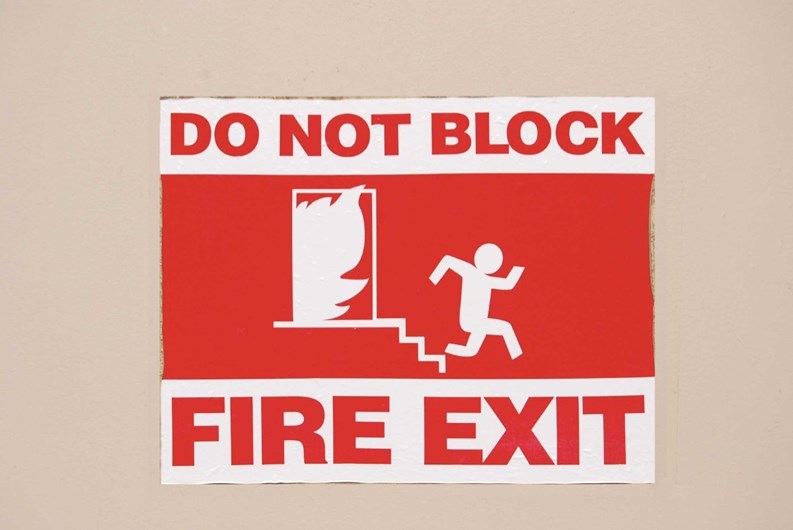

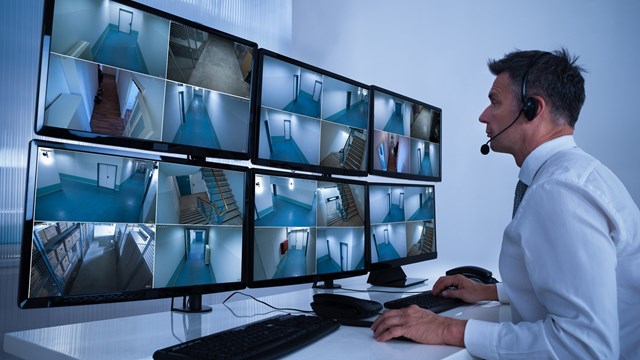

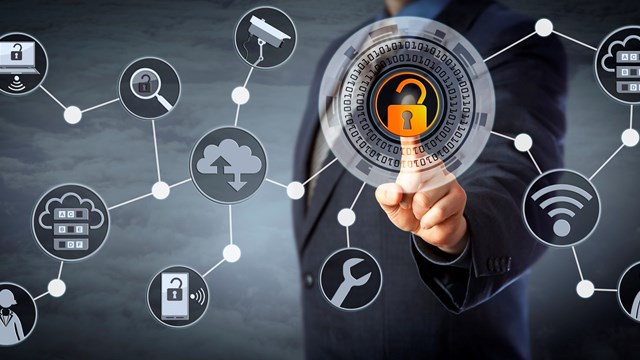
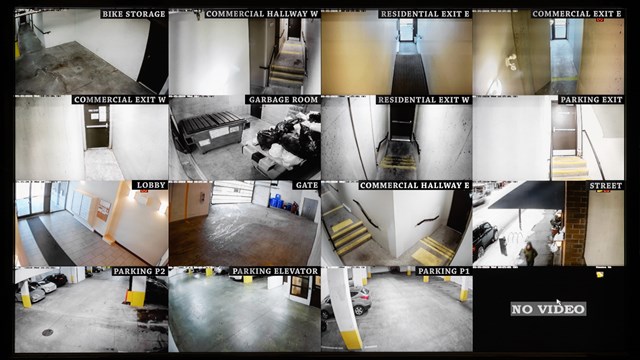
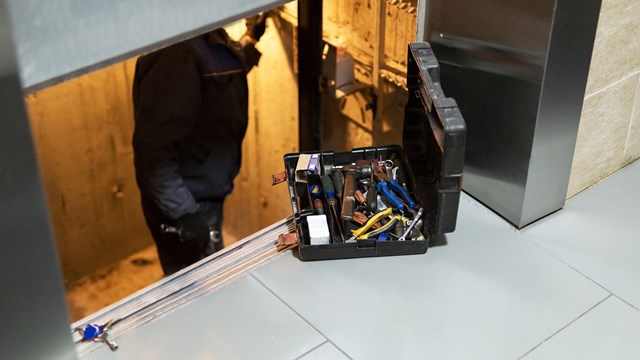
Comments
Leave a Comment